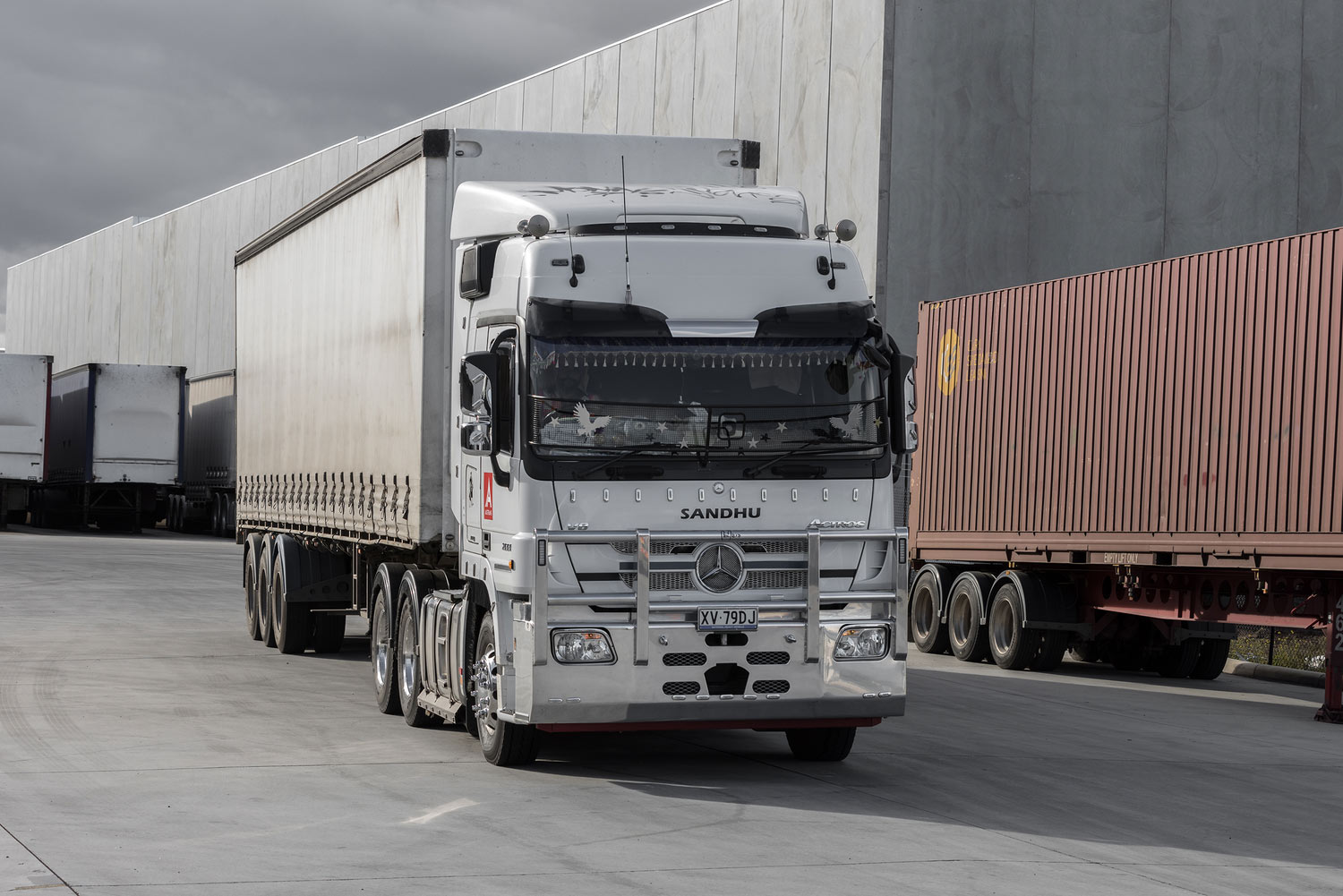
Road Compliance
Austrans is committed to transporting your freight safely, undertaking our road and rail operations with care and diligence.
Road Compliance
Chain of Responsibility
Chain of Responsibility (CoR) relates to the obligations of all parties involved in the transport supply chain under the Heavy Vehicle National Law (HVNL).
CoR legislation imposes legal liability on all those in the supply chain responsible for tasks where their actions, inactions or demands put driver’s lives and other lives at risk. Under the legislation, any party who has control in the supply chain can be held responsible and may be legally liable.
Our ambition is to streamline the process of the CoR (Chain of Responsibility), constantly evolving to make our organisational habits as efficient and successful as possible. We base our operations on the principle that the driver is not solely responsible for the journey of the goods transported. Instead, we take a whole-of-organisation approach that views the CoR as encompassing everyone from account managers to warehouse staff and through to drivers.
We encourage all our team to take ownership of their responsibility, encouraging open communications to ensure operational matters are transparent and understood at all points.
Austrans understands the immense importance of these practices, which is the legal responsibility of every company in the transport supply chain. Introduced 20 years ago, CoR address issues such as:
- Speeding
- Driver fatigue and exhaustion
- Vehicle overloading
- Load restraint management
Our CoR framework undergoes continuous internal scrutiny and review. We also have our practices independently audited and checked to exceed the expectations of our risk management policy.
Accreditations
Austrans is committed to handling and transporting your freight safely, undertaking our road and rail operations with care and due diligence, and ensuring our premises are registered and compliant with all relevant legislative and industry requirements.
As part of our commitment to legislative practice, all drivers employed and contracted by the company must have recognised accreditation under Australian conditions, including appropriate Heavy Vehicle Accreditation.
Key vehicle accreditations include:
- National Heavy Vehicle Accreditation, recognised in the Australian Capital Territory, New South Wales, Queensland, Tasmania and Victoria.
- WA Heavy Vehicle Accreditation, recognised in Western Australia. Completion of this course commonly takes three to four weeks.
- Assessed and certified as meeting the Master Code of Practice for The Australian Logistics Council Master Code Auditing Service (AMCAS).
Each of these accreditations differs slightly. Both are considered thoroughly comprehensive and are the premier programs in Australia to prepare logistics workers for safe and productive careers.
National Heavy Vehicle Accreditation modules include the core modules of mass management, maintenance management, and fatigue management.
Similarly, WA Heavy Vehicle Accreditation consists of the core modules of fatigue management, vehicle maintenance, dimension and loading. The fourth module is mass management, which is only necessary for specific circumstances.
Austrans is also suitably accredited for the storage and transportation of Food, Beverage, Health and Pharmaceutical goods and produce.
Other accreditations include:
- Relevant local government registration of food premises, Class 3, Warehouse/Distributors/Wholesaler/Import
- Registered for SQF Code for Storage and Distribution edition 8.1 Certified HACCP Based Food Safety Plans.
- Assessed and certified as meeting the requirement of the Primary Connect Quality and Excellence Program for the following product within the scope of the audit:
- Primary Connect Transport – Primary Connect
- Primary Connect Transport – Transport – Ambient
- Primary Connect Transport – Transport – Produce
Fatigue impairment
Austrans is committed to transporting your freight safely, undertaking our road and rail operations with care and diligence.
Driver fatigue is one of the biggest dangers on our roads and the most significant safety hazard for drivers working in the logistics industry. Common causes of driver fatigue are:
- failing to get enough sleep;
- driving at night during drowse-inducing settings; and
- long-haul trips where often there is an incentive for transporting the goods as quickly as possible.
In response to these hazards, Austrans has implemented fatigue assessment tests to monitor the wellbeing of our workers and policies that ensure workers refrain from shifts that extend over 12 hours.
Austrans has prioritised educating employees and contractors on the signs of fatigue, encouraging them to feel comfortable to take a break when required. Our policy is always to take preventative measures for rest and wellbeing rather than run the risk of endangering our employees or members of the community.
Speed Management
Austrans is committed to transporting your freight safely, undertaking our road and rail operations with care and diligence.
Austrans stresses the importance of proper conduct on the roads to all drivers. Speed management is an integral part of our road compliance and safety platform. With diligent management of our supply chain, our employees and contractors should not be pressured or tempted to speed.
Under our speed management policy, speeding refers to:
- Driving faster than the sign-posted speed limit
- Driving at a speed that is unsafe for the conditions
- Exceeding speed restrictions applying to a heavy vehicle.
Austrans’ employees must always consider the Heavy Vehicle National Law, the Work Health & Safety Laws, and Australian Road Rules. Failing to do so and causing an offence could result in suspension, remedial training, or employment termination.
